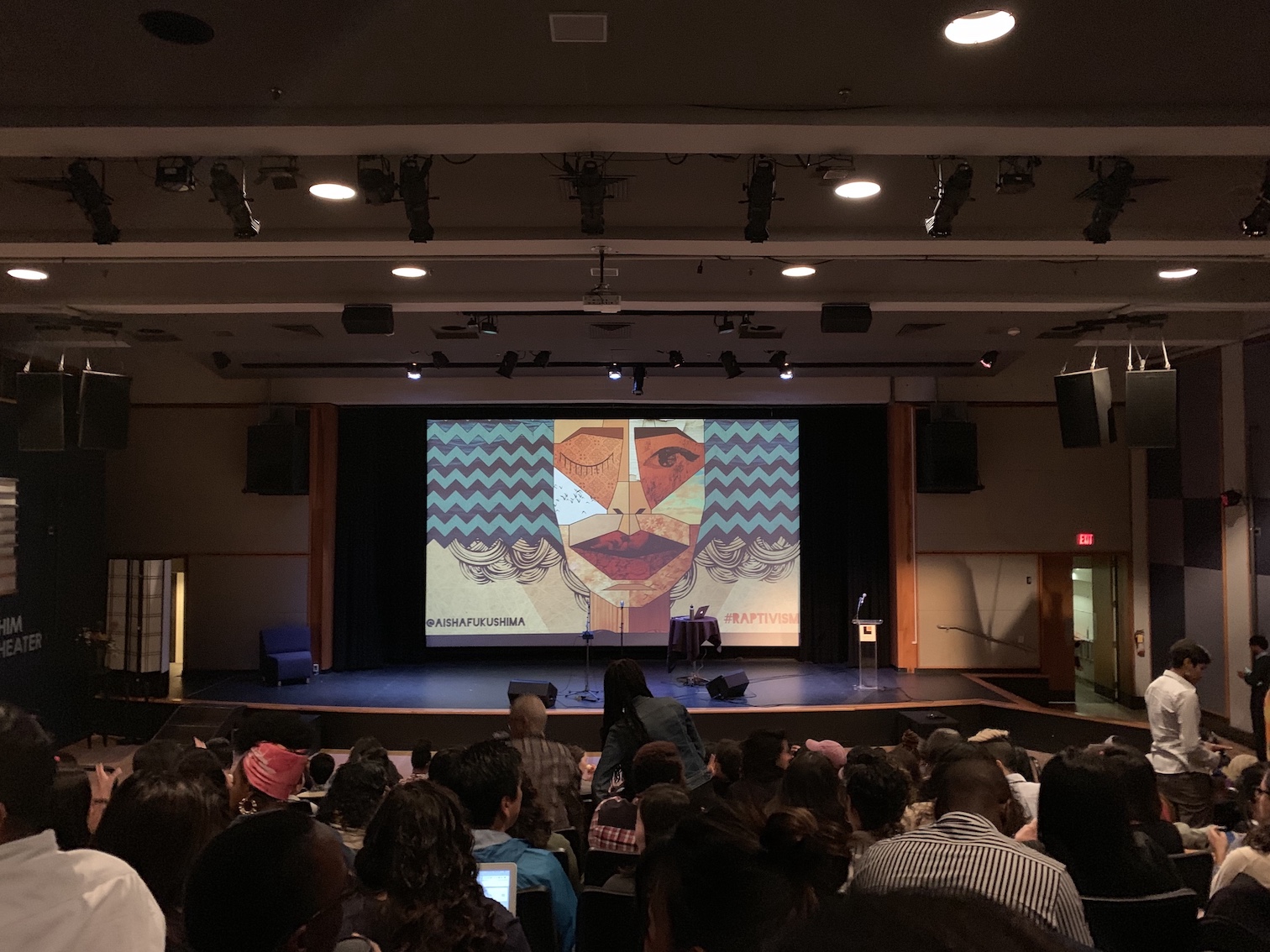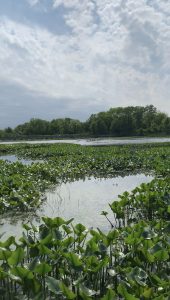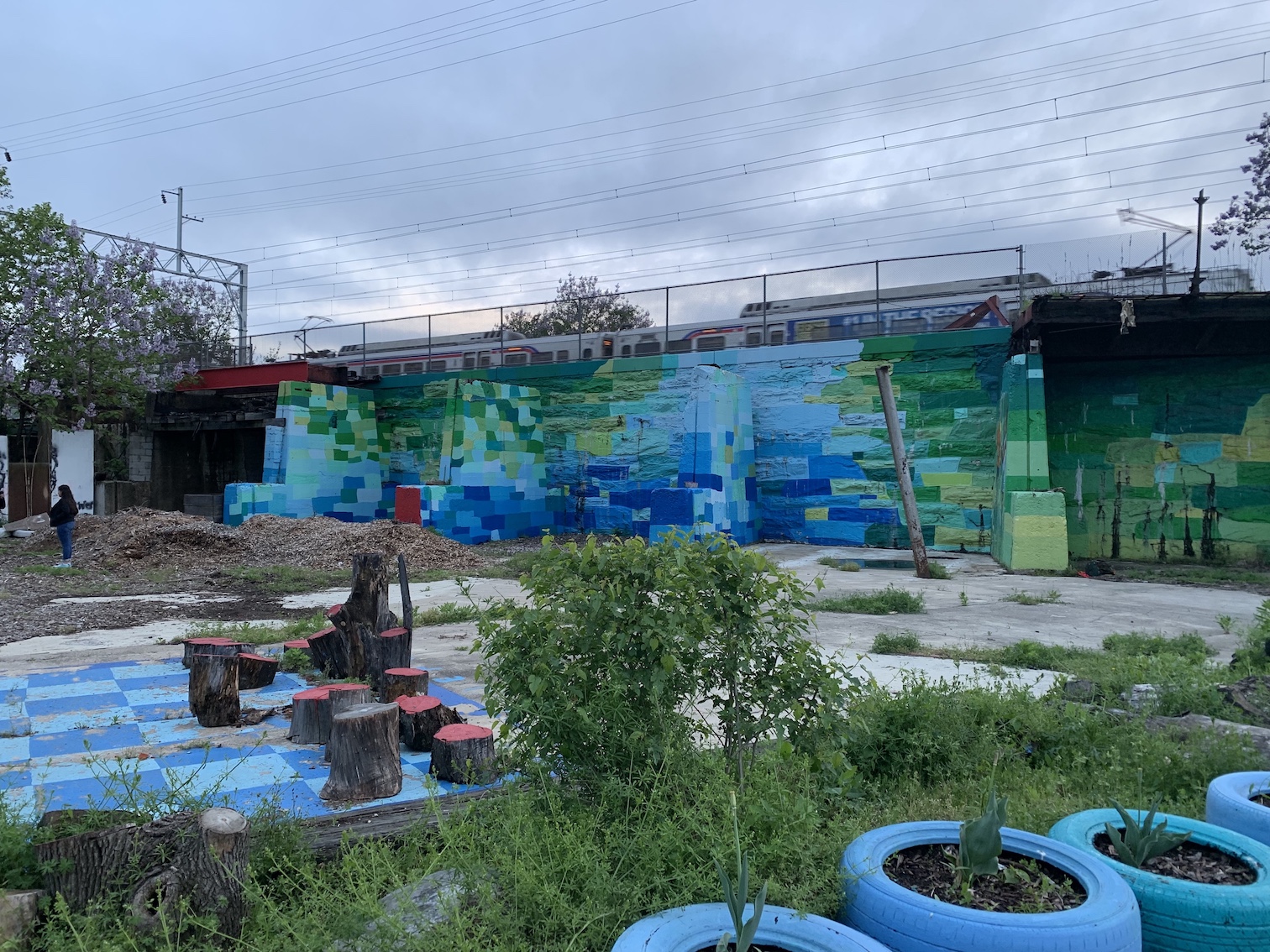Three Takeaways on Environmental Justice from PGM ONE
Environmental and climate justice work is an emerging part of APIENC’s organizing and politics. APIENC’s TTAC (Think and Take Action Cohort) brings together and inspires queer and transgender Asian and Pacific Islander (QTAPI) people in the SF Bay Area to engage and take action to stop climate and environmental injustices, particularly as they affect Black Indigenous People of Color (BIPOC) in the SF Bay Area and worldwide.

Early last month, I traveled to Philadelphia (Lenape land) and joined 350+ people at the annual PGM ONE Summit (People of the Global Majority in the Outdoors, Nature, and Environment). I was eager to bring APIENC’s particular analysis of queer and racial justice to a convening explicitly for people of color and indigenous people working in environmental movements. Focusing on this year’s summit themes of Care, Healing, and Resilience, here are 3 takeaways from my experience:

- We belong to the earth, not the other way around.
From meditating at an urban wildlife refuge, to learning about black herbalism and plant medicine, to engaging in embodied, outdoor rituals to reconnect to the earth, I was pulled to recognize that we, as human beings, belong to the earth. Workshop facilitators gently guided us through activities to reframe our relationship to nature, illuminating that we are nature, that nature is in us, that everything we have built around us is nature, that we are always in nature, that we are not separate from nature, and that all of nature is celestial magic. Land and water have adopted us and been our caretakers/ancestors since the beginning, and if we can truly honor that, then we can become better caretakers of the earth/ourselves in the face of climate catastrophe. We can practice and rebuild a spiritual, interdependent connection with the earth. - Indigenous knowledge and leadership is key.
For millennia, indigenous community members, leaders, and ancestors have known what it means to be in “right relationship” with the earth. Paraphrasing from adrienne maree brown’s PGM ONE keynote speech, getting in right relationship to the planet means getting in right relationship with those who are still in right relationship to the planet. There are those on this land who still have the original instructions for how to care for it, who know how to love the land, what to harvest, what to leave alone, how to engage in plant medicine, and more. They have seen all the iterations of what a right relationship can mean, on this particular land. So many of the answers we are looking for already exist, if we care to listen and learn from indigenous leaders. For those of us living on earth that we are not native to, it is imperative that we center indigenous knowledge, hold ourselves responsible for knowing how to care for the land we are on, assume our roles as water and land protectors, and heal our relationship to the earth. - QTAPI people can play a critical role in environmental movements.
While I felt spiritually energized, grounded, and educated at PGM ONE, there were also so many points where I knew that our political analyses around queer and racial justice in environmental movements could be taken one step further. After all, it seemed like I was one of the only attendees representing a queer and trans-specific, let alone QTPOC-specific, organization. I met so many queer and trans/people of color with deep roots in environmental and climate justice, who were struggling to keep their radical imagination alive while working for predominantly white, neoliberal environmental NGOs.As an organization/community with the intention, capacity, and resources to engage with racial and queer justice every day, I believe APIENC and QTAPI people as a whole are well-positioned to contribute to environmental movement analyses in the following ways:
- We focus on intergenerational histories and relationships, which means that we are attuned to how our ancestors/elders teach us about patience, time, and the pace of change. We think deeply about intergenerational trauma, often related to diaspora and migration, and how being severed and uprooted from ancestral land can be linked to intergenerational feelings of scarcity and powerlessness. We notice when that intergenerational trauma keeps our communities from boldly enacting the radical change we need (e.g. to combat climate catastrophe).
- As Asian and Pacific Islander people, we are positioned to understand the ways in which environmental destruction in the US and globally are intimately linked via imperialism. We know that our struggles are intertwined across the diaspora, and that transnational solidarity is key.
- We understand that queerness can be a transformative politic, beyond an individual identity category. Queerness is finding new ways to relate to one another and our bodies, and therefore, new ways to relate to the systems and earth around us. Embracing non-normativity, multiplicity, non-conformity, and fluidity, queerness means living with care and creativity at the core, so that we can build worlds and ways of being that have never quite existed before. As the environment rapidly changes around us, we will all need to learn how to queer and heal our relationship to the land.

As environmental and climate justice continue to emerge in APIENC’s work, I invite you to join in an ongoing process of learning and growing with us. I leave you with a collection of questions to reflect on and wrestle with, gathered from my experience at PGM ONE:
- In what ways have we been out of right relationship with the land, and therefore, each other? How can we interrogate and decolonize the ways we have been taught, well-intentioned or otherwise, to interact with nature?
- How can we restore an interdependent relationship with the planet, when we also need to hold our species accountable for all the harm we have caused? Could a transformative justice framework be helpful here?
- As humans, can we get specific about what it means to be in “right relationship” with the land? In the core of our bodies, what does that relationship feel like, and how can we lean on spiritual, embodied practices/knowledge to get there? From there, how can that relationship be practiced, verbalized, felt, internalized, and finally, made real?
Interested in mobilizing for environmental and climate justice with QTAPI community? If learning about regenerative economies, supporting climate warriors, and taking action for a just transition speaks to you, remember to check out our new environmental justice web page and join us in the coming year.

